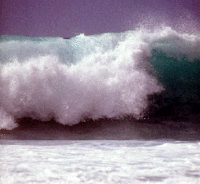In 1979 President Jimmy Carter offered Americans a stark choice. (Picture from eBay, an item no longer available.)
We could either use conservation to generate demand for alternatives to oil, or we could try to avoid the problem entirely.
Conservatives called this the Malaise Speech. They beat Carter over the head with it. They elected a string of Republican Presidents on the strength of it. They said we could avoid the hard choices, that we could use our military strength to guarantee our oil supplies for decades to come, that we could go on about our business and avoid the problem.
We chose to avoid it. And a generation, my generation, was lost. How many other generations will be lost only time will tell.
The political message of our time is that Americans finally get it, that we finally understand how fighting wars for oil is a losing game, that we finally understand the need to confront our energy needs.
The question is, do we understand just how intense that concentration must be? That’s why I’ve renamed this blog The War Against Oil.
It should be noted at the outset that the War Against Oil is only
the first half of a two-step process needed to save the planet.
(Picture from the ERRI counter-terrorism archive.)
Substituting other hydrocarbons for oil does not address the underlying
problem of global warming and CO2. Only energy technologies that use
the water cycle — electrolysis creating hydrogen from water, then
hydrogen creating energy with water as a byproduct — really answer the
need.
So how far behind are we? This far. Research
grants have just been given for producing ethanol from sources other
than corn. The technology for this still has a ways to go before it
becomes economically effective.
There are technologies that create energy without the use of
hydrocarbons. Solar energy has the most hype. It’s also the one where
you’re most likely to be ripped off. That’s because solar technology is
changing rapidly.
Committing to a home solar system today means
you may well have a white elephant tomorrow. Mega-projects using solar
to produce electricity for the grid are even worse. You’re putting
30-year money into 5-year property, and half of the electricity you create is
going to disappear running over our inefficient wires.
The best way to use solar is on a micro-level. If you can pay off
your investment in under 5 years from the electricity it produces for
your home, you have a good deal. But the best systems are even smaller,
like the solar panels that power emergency phones and lights along
roadways, or just power watches and other small devices you carry
around with you.
That’s an important concept to understand. The energy system of
tomorrow, using different types of technology to produce energy, won’t
and shouldn’t look like the energy system of today, in which
electricity is sent in by wires from hundreds of miles away, or fuel is
brought in on carriers from thousands of miles away. To think of it
that way is to make a fundamental mistake.
That doesn’t mean you can’t have projects that produce energy off
the current grid, with hydrogen becoming a portable energy source. Geothermal projects can be sited anywhere, even within existing oil fields,
and that energy can be used to produce hydrogen on-site that would
travel through existing pipelines to storage facilities, much like
natural gas.
We can still draw power from the wind and water as well. I have problems with some of the big wind projects
now going up, again because you lose half that power funneling it
through the existing grid. You don’t have to build a dam across a
river, either. You can use the tides or the ocean currents.
The most cost-effective energy technologies remain conservation.
Insulating or redesigning homes can cut energy costs dramatically. But
until we get ample supplies of a portable energy source, like hydrogen,
we will still be losing the War Against Oil.
That’s why we have to treat it as a war.














“The most cost-effective energy technologies remain conservation.”
I have a problem with the term conservation. It leads to thoughts of rationing and arbitrary limitations. I think a far better term is efficiency. Efficiency means using as little power as possible to get a given job done, not making arbitrary decisions about which jobs are allowed to be done. For example, rather than a law reducing highway speed limits, I’d rather a law that requires a specific gas mileage (rated at 65 mph) for all licensed and registered vehicles. The fuel savings would be the same, but the consumer would lose no utility.
“The most cost-effective energy technologies remain conservation.”
I have a problem with the term conservation. It leads to thoughts of rationing and arbitrary limitations. I think a far better term is efficiency. Efficiency means using as little power as possible to get a given job done, not making arbitrary decisions about which jobs are allowed to be done. For example, rather than a law reducing highway speed limits, I’d rather a law that requires a specific gas mileage (rated at 65 mph) for all licensed and registered vehicles. The fuel savings would be the same, but the consumer would lose no utility.